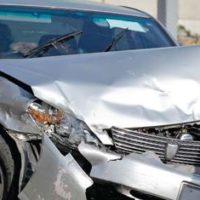What are the Most Common Causes of Head-On Collisions?

They are some of the deadliest auto accidents. A head-on collision, also called a “frontal” crash, occurs when two vehicles hit each other while traveling facing toward each other. This type of collision usually happens when one vehicle travels out of its lane and into the oncoming car. If both vehicles are going 30 miles per hour, that head-on collision will occur at 60 mph.
Many of these head-on collisions lead to fatalities. The Insurance Institute for Highway Safety estimates a 57% fatality rate among those inside vehicles involved in a frontal crash in 2017.
Federal statistics tell us that among the nearly 7 million traffic crashes in 2019, whether hitting a pole or post, a guardrail, a bridge, or colliding head-on with another vehicle, all frontal fatalities took more than 12,000 lives in 2019.
If a loved one has been involved n a head-on collision and is suffering traumatic injuries or died as a result, J. Allan Brown can help you with your fatal car accident claim. An initial consultation is free.
Common Causes of a Head-On Collision
Many head-on collisions could have been prevented if one or both drivers had been paying attention. The reasons for a head-on could be numerous:
- Driving DUI or impaired – A drunk driver often cannot control his vehicle because his critical thinking skills are impaired. He may also be physically unable to control the car, and it drifts into the path of an oncoming vehicle.
- Driving Drowsy – Falling asleep behind the wheel is more common than you think. According to the National Sleep Foundation, about 20% of drivers admit to falling asleep behind the wheel at some time in the past year.
- Distracted Driving – Especially since the invention of cell phones, people seem unable to put down the phone or check it while behind the wheel. It is challenging to drive when you are distracted by sending a text message or reading an email. Distracted driving can result from dropping something on the floor, eating while driving, or putting on makeup.
- Aggressive Driving – Some drivers take out their stress and frustration by using their vehicles. The result can be some very poor decisions on speed, weaving in and out of traffic, and applying the brake.
- Improper passing – Trying to pass another vehicle on a blind curve or just before the crest of a hill makes for poor decision-making and can result in a head-on collision.
- Failure to Follow Road Signs or Rules of the Road – Road signs are not there for entertainment. If a posted sign says slow down, there may be a reason, such as a tight turn. Excessive speed could mean you adjust or correct and drive right into an oncoming vehicle.
- Driving on a Wrong Way – The sign may not have been clear, and you find yourself going the wrong way on a one-way street. Without immediate correction, you are setting yourself up for a head-on collision.
Besides poor choices made by drivers, road conditions such as ice, snow, and rain can make driving particularly hazardous to the point of losing control of the vehicle. Be sure to reduce speed by at least 10 MPH when weather conditions present a potential hazard.
Many head-on collisions occur in rural areas where distraction and speed can be significant factors leading to a crash.
Head-On Fatalities
A head-on crash often causes death when the occupant’s head collides with a hard surface. Whether that is the dashboard, the windshield, or the roof of the vehicle. Being ejected from the car, which happens when the occupant is not wearing a seat belt, can result in traumatic brain injury and death.
Your Alabama Car Accident Attorney
If a loved one has lost their life in a head-on collision, you will want to initiate an investigation immediately. Evidence tends to disappear. The scene must be secured, and investigators dispatched immediately. The at-fault party will owe damages to the survivors of the injured or accident victim.
Attorney J. Allan Brown is an experienced, compassionate auto accident lawyer who has helped countless folks during this challenging time. He will offer a consultation to begin determining the cause of the accident and the negligent party. An insurance adjuster may seem very nice at the scene when he offers you a check, but you rarely want to take his first offer. It is never in your best interest.
Attorney Brown will help you handle the difficulties presented by Alabama’s pure contributory negligence rule, which will be used by the other side to blame you for your accident and reduce what you are due. Contact the law office of J. Allan Brown in Mobile at 251-220-3199 to begin the process.
Sources:
Justia
https://www.justia.com/car-accidents/types-of-car-accidents/head-on-collisions/
Nolo
https://www.nolo.com/legal-encyclopedia/what-the-most-common-vehicle-accident-injuries.html
NHTSA
https://cdan.nhtsa.gov/tsftables/tsfar.htm#
IIHS
https://www.iihs.org/topics/fatality-statistics/detail/passenger-vehicle-occupants#Crash-types




